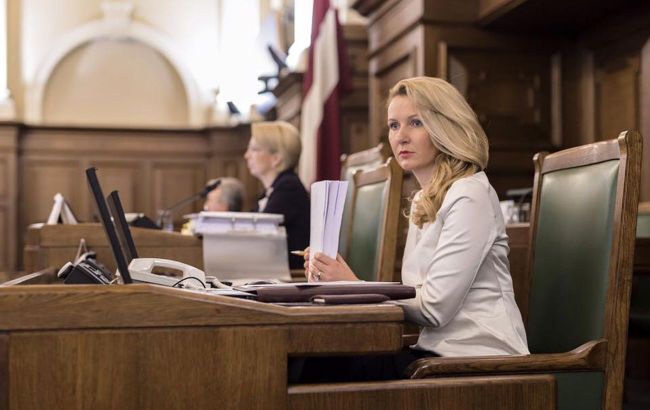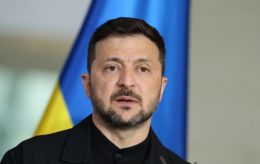Latvia wants to ban cars registered in Russia and Belarus from country
 Inese Libina-Egnere, Latvia's Minister of Justice (Photo: facebook com Inese Lībiņa-Egnere)
Inese Libina-Egnere, Latvia's Minister of Justice (Photo: facebook com Inese Lībiņa-Egnere)
Latvia's government is preparing a draft law that would introduce changes to its legal framework, preventing vehicles registered in Russia and Belarus from remaining in the country, according to Latvia's Minister of Justice, Inese Libina-Egnere.
The proposed legislation would also enable the lawful confiscation of vehicles registered in Russia and Belarus.
The planned changes would require owners of vehicles with Russian and Belarusian registration plates entering Latvia to re-register these vehicles within a specified period in the Republic of Latvia. The draft law will outline the consequences and liabilities for vehicle owners who fail to comply.
What the head of the Ministry of Justice of Latvia says
"If any visitor enters Latvia, they must respect the laws and regulations of our country. Crossing the EU border in a vehicle registered in Russia, and thus remaining in Latvia, constitutes a violation of sanctions," stated Inese Libina-Egnere.
She clarified that if vehicles with Russian and Belarusian plates are not timely re-registered, they may be confiscated, with the proceeds potentially going to support Ukraine's armed forces.
Why Latvia is introducing this law
Latvia's Ministry of Justice is basing these legislative changes on clarifications provided by the European Commission, which state that sanctions against Russia also extend to the personal vehicles of Russian citizens registered in the Russian Federation. Consequently, such citizens cannot stay within the EU with their cars.
The European Commission has emphasized that the appropriate and proportionate application of sanctions falls within the competence of each member state. The planned changes in Latvia also include a ban on vehicles registered in Belarus.
Ban on entry for cars with Russian plates
On September 13th, Estonia, Lithuania, and Latvia announced that, following clarifications from the European Commission regarding sanctions, they would no longer admit vehicles with Russian registration plates onto their territory.
Suppose a vehicle with Russian registration plates arrives at the border. In that case, the driver and passengers will either have to return to Russia, or they may cross the border without their vehicle, which could face confiscation.
Subsequently, it became known that Norway would also prohibit the entry of vehicles with Russian plates. Norway will be the last European bordering country where Russians were previously allowed to enter with their cars.

